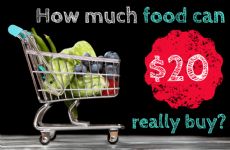|
We hear over and over that we should cut back on processed foods to have a more healthful diet. On the surface that sounds good but is that really accurate? When you review a time line of How America Grew related to food trends over the last 50 years in America, it is easy to see that processed foods were a central part of the growth. The FDA terms processed food as "any food other than a raw agricultural commodity and includes any raw agricultural commodity that has been subject to processing, such as canning, cooking, freezing, dehydration, or milling." The last time I checked, staples like bread and soy milk are processed foods since I can't really make a sandwich out of a pile of grain or drink soy beans. The process of turning wheat into bread is about an eight step process while turning soy beans into soy milk takes about 12 steps. So are these the types of processed foods I should be limiting? Traditional food processing has been around for generations and served two basic functions. The first was to make food more digestible and the second was to preserve food when it is available for times when it would be scarce. Traditional processing was done by farmers and artisans such as bread makers, cheese makers, distillers and millers. This process produced food and profits for not only a farmer but also the community. Food processing of this type took the best of a main ingredient like wheat and turned it into a nutritious and easily consumed and digested product, such as bread. Most of the processed food we know today has come from industrial processing practices that took the process out of the hands of local artisans. Many times nutrients are destroyed or altered during processing, and additional additives are included to increase shelf life, alter color, texture or taste. Today's industrial processing typically uses refined sugars, white flour, processed and hydrogenated oils, and additives of synthetic vitamins as much as it uses key ingredients like wheat or beans. Your overall goal should be to try and decrease the negatively processed foods in favor of the healthy, nutrient-rich options. Here are a few ways you can decrease your negatively processed food choices for your family.
We will most likely always have to select some processed foods as we make meal choices each day. However, we can limit the pre packaged convenience foods and processed and preserved meats we select. We can pick whole grains, low-sodium and trans fat-free choices as much as possible and get back to making what we can for ourselves. I live a busy life full of work, running kids and volunteering and don't really enjoy cooking. I have found that with a little planning related to menu ideas and making sure I have all the ingredients I will need on hand, my family can have a well-balanced, less-processed meal many nights each week. Have you been able to decrease your negatively processed foods in favor of more positively processed foods? |
Popular EntriesMore From SparkPeople
|




.jpg)















